Search Results
Showing results 221 to 240 of 353
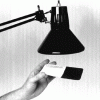
Give and Take
Source Institutions
In this activity, learners explore liquid crystals, light and temperature. Using a postcard made of temperature-sensitive liquid crystal material, learners monitor temperature changes.
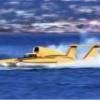
Fun with Speedboats
Source Institutions
In this activity, learners explore how boats are engineered to achieve speed.

Portable Sundial
Source Institutions
Learners construct one or more of the following kinds of sundials: a shadow plot, a horizontal sundial, and a diptych sundial.
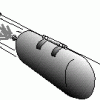
Balloon Rockets
Source Institutions
This is an activity about rockets. Learners will explore how rockets leave Earth's orbit and what it takes to make a launch successful.
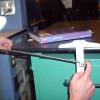
Bend That Bar
Learners play the role of materials engineers as they test the flexibility of different materials.

How the Rubber Meets the Road
Source Institutions
In this activity, learners explore how engineers design tire treads to increase safety and reliability.

Cool It!
Source Institutions
In this fun hands-on activity, learners use simple materials to investigate evaporation. How can the evaporation of water on a hot day be used to cool an object? Find out the experimental way!

Hot Stuff!: Investigation #2
Learners test two jars containing hot water, one covered with plastic and one open, for changes in temperature.

Hang Time
Source Institutions
In this physics activity, learners will build their own parachutes out of tissue paper. They will explore the effects of weight, height, and design on the parachutes' speed and stability.

There's Always Room For JELL-O
Source Institutions
In this activity, learners cut wells in JELL-O© and load the wells with different detergent solutions.

Crunch and Munch Lab
Source Institutions
In this activity, learners use three types of cheesy snacks--cheese balls, cheese puffs, and Cheetos--to learn about polymers.
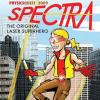
How Thick is Your Hair?
Source Institutions
In this activity on page 13 of the PDF, learners use a laser pointer (with known wavelength of light) to measure the thickness of a human hair.
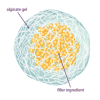
Self-Assembling Dessert Toppings
Source Institutions
This is an activity (located on page 3 of the PDF under Self-Assembly Activity) about self-assembly, the ability of molecules to assemble themselves according to certain rules.

Spaghetti Strength
Source Institutions
In this activity on page 7 of the PDF, learners explore how engineers characterize building materials.
Simple Submarine
Source Institutions
Using simple, inexpensive items, learners build and test submarine models.

Building a Magic Carpet
Source Institutions
In this activity (page 89 of the PDF), learners compare and contrast pitch and roll motions by using a Magic Carpet maze similar to one that was used for Neurolab investigations about microgravity.

Sea Turtle First Aid Investigation
Source Institutions
This activity (located on page 4 of the PDF under GPS: Sea Turtles Activity) is a full inquiry investigation into testing a repair material.

Can Nutrients in Water Cause Harm?
Source Institutions
In this water pollution activity, learners create pond water cultures and investigate the effects of adding chemicals or natural nutrients.

Racing with the Sun: Creating a Solar Car
Source Institutions
Learners use engineering design principles to construct and test a fully solar-powered car. Solar car kits usually include a photovoltaic cell and motor; some include a chassis as well.
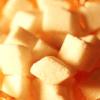
Sugar Crystal Challenge
Source Institutions
This lesson focuses on surface area and how the shape of sugar crystals may differ as they are grown from sugars of different coarseness.
